- Home
- P. G. Wodehouse
Carry On, Jeeves!
Carry On, Jeeves! Read online
CONTENTS
About the Book
About the Author
Also by P.G. Wodehouse
Title Page
Dedication
1. JEEVES TAKES CHARGE
2. THE ARTISTIC CAREER OF CORKY
3. JEEVES AND THE UNBIDDEN GUEST
4. JEEVES AND THE HARD-BOILED EGG
5. THE AUNT AND THE SLUGGARD
6. THE RUMMY AFFAIR OF OLD BIFFY
7. WITHOUT THE OPTION
8. FIXING IT FOR FREDDIE
9. CLUSTERING ROUND YOUNG BINGO
10. BERTIE CHANGES HIS MIND
Copyright
About the Book
A Jeeves and Wooster collection
These marvellous stories introduce us to Jeeves, whose first ever duty is to cure Bertie’s raging hangover (‘If you would drink this, sir … it is a little preparation of my own invention. It is the Worcester Sauce that gives it its colour. The raw egg makes it nutritious. The red pepper gives it its bite. Gentlemen have told me they have found it extremely invigorating after a late evening.’)
And from that moment, one of the funniest, sharpest and most touching partnerships in English literature never looks back…
About the Author
The author of almost a hundred books and the creator of Jeeves, Blandings Castle, Psmith, Ukridge, Uncle Fred and Mr Mulliner, P.G. Wodehouse was born in 1881 and educated at Dulwich College. After two years with the Hong Kong and Shanghai Bank he became a full-time writer, contributing to a variety of periodicals including Punch and the Globe. He married in 1914. As well as his novels and short stories, he wrote lyrics for musical comedies with Guy Bolton and Jerome Kern, and at one time had five musicals running simultaneously on Broadway. His time in Hollywood also provided much source material for fiction.
At the age of 93, in the New Year’s Honours List of 1975, he received a long-overdue knighthood, only to die on St Valentine’s Day some 45 days later.
Also by P.G. Wodehouse
FICTION
Aunts Aren’t Gentlemen
The Adventures of Sally
Bachelors Anonymous
Barmy in Wonderland
Big Money
Bill the Conqueror
Blandings Castle and Elsewhere
Carry On, Jeeves
The Clicking of Cuthbert
Cocktail Time
The Code of the Woosters
The Coming of Bill
Company for Henry
A Damsel in Distress
Do Butlers Burgle Banks
Doctor Sally
Eggs, Beans and Crumpets
A Few Quick Ones
French Leave
Frozen Assets
Full Moon
Galahad at Blandings
A Gentleman of Leisure
The Girl in Blue
The Girl on the Boat
The Gold Bat
The Head of Kay’s
The Heart of a Goof
Heavy Weather
Hot Water
Ice in the Bedroom
If I Were You
Indiscretions of Archie
The Inimitable Jeeves
Jeeves and the Feudal Spirit
Jeeves in the Offing
Jill the Reckless
Joy in the Morning
Laughing Gas
Leave it to Psmith
The Little Nugget
Lord Emsworth and Others
Louder and Funnier
Love Among the Chickens
The Luck of Bodkins
The Man Upstairs
The Man with Two Left Feet
The Mating Season
Meet Mr Mulliner
Mike and Psmith
Mike at Wrykyn
Money for Nothing
Money in the Bank
Mr Mulliner Speaking
Much Obliged, Jeeves
Mulliner Nights
Not George Washington
Nothing Serious
The Old Reliable
Pearls, Girls and Monty Bodkin
A Pelican at Blandings
Piccadilly Jim
Pigs Have Wings
Plum Pie
The Pothunters
A Prefect’s Uncle
The Prince and Betty
Psmith, Journalist
Psmith in the City
Quick Service
Right Ho, Jeeves
Ring for Jeeves
Sam me Sudden
Service with a Smile
The Small Bachelor
Something Fishy
Something Fresh
Spring Fever
Stiff Upper Lip, Jeeves
Summer Lightning
Summer Moonshine
Sunset at Blandings
The Swoop
Tales of St Austin’s
Thank You, Jeeves
Ukridge
Uncle Dynamite
Uncle Fred in the Springtime
Uneasy Money
Very Good, Jeeves
The White Feather
William Tell Told Again
Young Men in Spats
OMNIBUSES
The World of Blandings
The World of Jeeves
The World of Mr Mulliner
The World of Psmith
The World of Ukridge
The World of Uncle Fred
Wodehouse Nuggets (edited by Richard Usborne)
The World of Wodehouse Clergy
The Hollywood Omnibus
Weekend Wodehouse
PAPERBACK OMNIBUSES
The Golf Omnibus
The Aunts Omnibus
The Drones Omnibus
The Jeeves Omnibus 1
The Jeeves Omnibus 3
POEMS
The Parrot and Other Poems
AUTOBIOGRAPHICAL
Wodehouse on Wodehouse (comprising Bring on the Girls, Over Seventy, Performing Flea)
LETTERS
Yours, Plum
To Bernard Le Strange
1 JEEVES TAKES CHARGE
NOW, TOUCHING THIS business of old Jeeves – my man, you know – how do we stand? Lots of people think I’m much too dependent on him. My Aunt Agatha, in fact, has even gone so far as to call him my keeper. Well, what I say is: Why not? The man’s a genius. From the collar upward he stands alone. I gave up trying to run my own affairs within a week of his coming to me. That was about half a dozen years ago, directly after the rather rummy business of Florence Craye, my Uncle Willoughby’s book, and Edwin, the Boy Scout.
The thing really began when I got back to Easeby, my uncle’s place in Shropshire. I was spending a week or so there, as I generally did in the summer; and I had had to break my visit to come back to London to get a new valet. I had found Meadowes, the fellow I had taken to Easeby with me, sneaking my silk socks, a thing no bloke of spirit could stick at any price. It transpiring, moreover, that he had looted a lot of other things here and there about the place, I was reluctantly compelled to hand the misguided blighter the mitten and go to London to ask the registry office to dig up another specimen for my approval. They sent me Jeeves.
I shall always remember the morning he came. It so happened that the night before I had been present at a rather cheery little supper, and I was feeling pretty rocky. On top of this I was trying to read a book Florence Craye had given me. She had been one of the house-party at Easeby, and two or three days before I left we had got engaged. I was due back at the end of the week, and I knew she would expect me to have finished the book by then. You see, she was particularly keen on boosting me up a bit nearer her own plane of intellect. She was a girl with a wonderful profile, but steeped to the gills in serious purpose. I can’t give you a better idea of the way thi
ngs stood than by telling you that the book she’d given me to read was called ‘Types of Ethical Theory,’ and that when I opened it at random I struck a page beginning: –
‘The postulate or common understanding involved in speech is certainly co-extensive, in the obligation it carries, with the social organism of which language is the instrument, and the ends of which it is an effort to subserve.’
All perfectly true, no doubt; but not the sort of thing to spring on a lad with a morning head.
I was doing my best to skim through this bright little volume when the bell rang. I crawled off the sofa and opened the door. A kind of darkish sort of respectful Johnnie stood without.
‘I was sent by the agency, sir,’ he said. ‘I was given to understand that you required a valet.’
I’d have preferred an undertaker; but I told him to stagger in, and he floated noiselessly through the doorway like a healing zephyr. That impressed me from the start. Meadowes had had flat feet and used to clump. This fellow didn’t seem to have any feet at all. He just streamed in. He had a grave, sympathetic face, as if he, too, knew what it was to sup with the lads.
‘Excuse me, sir,’ he said gently.
Then he seemed to flicker, and wasn’t there any longer. I heard him moving about in the kitchen, and presently he came back with a glass on a tray.
‘If you would drink this, sir,’ he said, with a kind of bedside manner, rather like the royal doctor shooting the bracer into the sick prince. ‘It is a little preparation of my own invention. It is the Worcester Sauce that gives it its colour. The raw egg makes it nutritious. The red pepper gives it its bite. Gentlemen have told me they have found it extremely invigorating after a late evening.’
I would have clutched at anything that looked like a life-line that morning. I swallowed the stuff. For a moment I felt as if somebody had touched off a bomb inside the old bean and was strolling down my throat with a lighted torch, and then everything seemed suddenly to get all right. The sun shone in through the window; birds twittered in the tree-tops; and, generally speaking, hope dawned once more.
‘You’re engaged!’ I said, as soon as I could say anything.
I perceived clearly that this cove was one of the world’s workers, the sort no home should be without.
‘Thank you, sir. My name is Jeeves.’
‘You can start in at once?’
‘Immediately, sir.’
‘Because I’m due down at Easeby, in Shropshire, the day after to-morrow.’
‘Very good, sir.’ He looked past me at the mantelpiece. ‘That is an excellent likeness of Lady Florence Craye, sir. It is two years since I saw her ladyship. I was at one time in Lord Worplesdon’s employment. I tendered my resignation because I could not see eye to eye with his lordship in his desire to dine in dress trousers, a flannel shirt, and a shooting coat.’
He couldn’t tell me anything I didn’t know about the old boy’s eccentricity. This Lord Worplesdon was Florence’s father. He was the old buster who, a few years later, came down to breakfast one morning, lifted the first cover he saw, said ‘Eggs! Eggs! Eggs! Damn all eggs!’ in an overwrought sort of voice, and instantly legged it for France, never to return to the bosom of his family. This, mind you, being a bit of luck for the bosom of the family, for old Worplesdon had the worst temper in the county.
I had known the family ever since I was a kid, and from boyhood up this old boy had put the fear of death into me. Time, the great healer, could never remove from my memory the occasion when he found me – then a stripling of fifteen – smoking one of his special cigars in the stables. He got after me with a hunting-crop just at the moment when I was beginning to realise that what I wanted most on earth was solitude and repose, and chased me more than a mile across difficult country. If there was a flaw, so to speak, in the pure joy of being engaged to Florence, it was the fact that she rather took after her father, and one was never certain when she might erupt. She had a wonderful profile, though.
‘Lady Florence and I are engaged, Jeeves,’ I said.
‘Indeed, sir?’
You know, there was a kind of rummy something about his manner. Perfectly all right and all that, but not what you’d call chirpy. It somehow gave me the impression that he wasn’t keen on Florence. Well, of course, it wasn’t my business. I supposed that while he had been valeting old Worplesdon she must have trodden on his toes in some way. Florence was a dear girl, and, seen sideways, most awfully good-looking; but if she had a fault it was a tendency to be a bit imperious with the domestic staff.
At this point in the proceedings there was another ring at the front door. Jeeves shimmered out and came back with a telegram. I opened it. It ran:
Return immediately. Extremely urgent. Catch first train. Florence.
‘Rum!’ I said.
‘Sir?’
‘Oh, nothing!’
It shows how little I knew Jeeves in those days that I didn’t go a bit deeper into the matter with him. Nowadays I would never dream of reading a rummy communication without asking him what he thought of it. And this one was devilish odd. What I mean is, Florence knew I was going back to Easeby the day after to-morrow, anyway; so why the hurry call? Something must have happened, of course; but I couldn’t see what on earth it could be.
‘Jeeves,’ I said, ‘we shall be going down to Easeby this afternoon. Can you manage it?’
‘Certainly, sir.’
‘You can get your packing done and all that?’
‘Without any difficulty, sir. Which suit will you wear for the journey?’
‘This one.’
I had on a rather sprightly young check that morning, to which I was a good deal attached; I fancied it, in fact, more than a little. It was perhaps rather sudden till you got used to it, but, nevertheless, an extremely sound effort, which many lads at the club and elsewhere had admired unrestrainedly.
‘Very good, sir.’
Again there was that kind of rummy something in his manner. It was the way he said it, don’t you know. He didn’t like the suit. I pulled myself together to assert myself. Something seemed to tell me that, unless I was jolly careful and nipped this lad in the bud, he would be starting to boss me. He had the aspect of a distinctly resolute blighter.
Well, I wasn’t going to have any of that sort of thing, by Jove! I’d seen so many cases of fellows who had become perfect slaves to their valets. I remember poor old Aubrey Fothergill telling me – with absolute tears in his eyes, poor chap! – one night at the club, that he had been compelled to give up a favourite pair of brown shoes simply because Meekyn, his man, disapproved of them. You have to keep these fellows in their place, don’t you know. You have to work the good old iron-hand-in-the-velvet-glove wheeze. If you give them a what’s-its-name, they take a thingummy.
‘Don’t you like this suit, Jeeves?’ I said coldly.
‘Oh, yes, sir.’
‘Well, what don’t you like about it?’
‘It is a very nice suit, sir.’
‘Well, what’s wrong with it? Out with it, dash it!’
‘If I might make the suggestion, sir, a simple brown or blue, with a hint of some quiet twill—’
‘What absolute rot!’
‘Very good, sir.’
‘Perfectly blithering, my dear man!’
‘As you say, sir.’
I felt as if I had stepped on the place where the last stair ought to have been, but wasn’t. I felt defiant, if you know what I mean, and there didn’t seem anything to defy.
‘All right, then,’ I said.
‘Yes, sir.’
And then he went away to collect his kit, while I started in again on ‘Types of Ethical Theory’ and took a stab at a chapter headed ‘Idiopsychological Ethics.’
Most of the way down in the train that afternoon, I was wondering what could be up at the other end. I simply couldn’t see what could have happened. Easeby wasn’t one of those country houses you read about in the society novels, where young girls are lure
d on to play baccarat and then skinned to the bone of their jewellery, and so on. The house-party I had left had consisted entirely of law-abiding birds like myself.
Besides, my uncle wouldn’t have let anything of that kind go on in his house. He was a rather stiff, precise sort of old boy, who liked a quiet life. He was just finishing a history of the family or something, which he had been working on for the last year, and didn’t stir much from the library. He was rather a good instance of what they say about its being a good scheme for a fellow to sow his wild oats. I’d been told that in his youth Uncle Willoughby had been a bit of a rounder. You would never have thought it to look at him now.
When I got to the house, Oakshott, the butler, told me that Florence was in her room, watching her maid pack. Apparently there was a dance on at a house about twenty miles away that night, and she was motoring over with some of the Easeby lot and would be away some nights. Oakshott said she had told him to tell her the moment I arrived; so I trickled into the smoking-room and waited, and presently in she came. A glance showed me that she was perturbed, and even peeved. Her eyes had a goggly look, and altogether she appeared considerably pipped.
‘Darling!’ I said, and attempted the good old embrace; but she side-stepped like a bantam weight.
‘Don’t!’
‘What’s the matter?’
‘Everything’s the matter! Bertie, you remember asking me, when you left, to make myself pleasant to your uncle?’
‘Yes.’
The idea being, of course, that as at that time I was more or less dependent on Uncle Willoughby I couldn’t very well marry without his approval. And though I knew he wouldn’t have any objection to Florence, having known her father since they were at Oxford together, I hadn’t wanted to take any chances; so I had told her to make an effort to fascinate the old boy.
‘You told me it would please him particularly if I asked him to read me some of his history of the family.’
‘Wasn’t he pleased?’
‘He was delighted. He finished writing the thing yesterday afternoon, and read me nearly all of it last night. I have never had such a shock in my life. The book is an outrage. It is impossible. It is horrible!’
‘But, dash it, the family weren’t so bad as all that.’
‘It is not a history of the family at all. Your uncle has written his reminiscences! He calls them “Recollections of a Long Life”!’

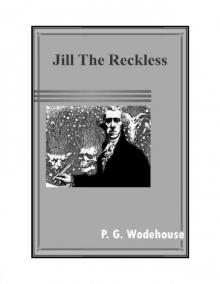 Jill the Reckless
Jill the Reckless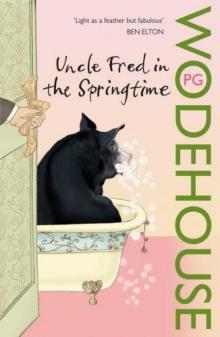 Uncle Fred in the Springtime
Uncle Fred in the Springtime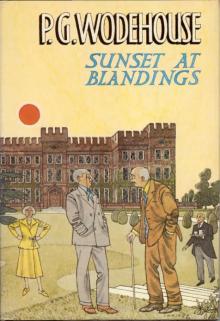 Sunset at Blandings
Sunset at Blandings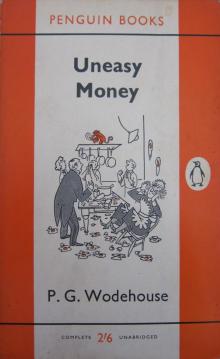 Uneasy Money
Uneasy Money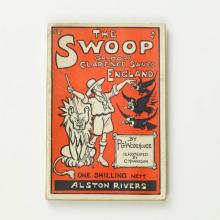 The Swoop! or, How Clarence Saved England: A Tale of the Great Invasion
The Swoop! or, How Clarence Saved England: A Tale of the Great Invasion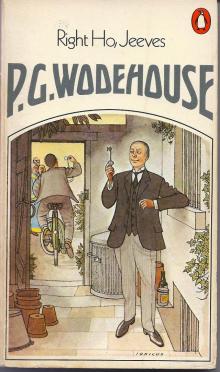 Right Ho, Jeeves
Right Ho, Jeeves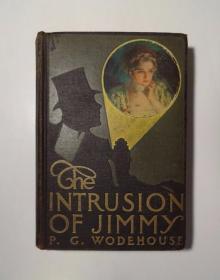 The Intrusion of Jimmy
The Intrusion of Jimmy The Jeeves Omnibus - Vol 1:
The Jeeves Omnibus - Vol 1: Aunts Aren't Gentlemen:
Aunts Aren't Gentlemen: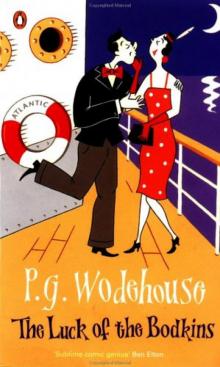 The Luck of the Bodkins
The Luck of the Bodkins The Little Nugget
The Little Nugget Money for Nothing
Money for Nothing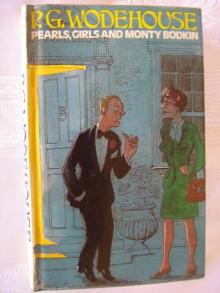 Pearls, Girls and Monty Bodkin
Pearls, Girls and Monty Bodkin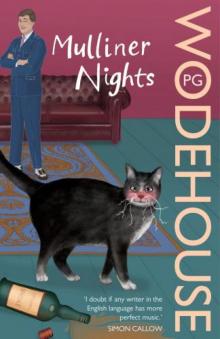 Mulliner Nights
Mulliner Nights Blandings Castle and Elsewhere
Blandings Castle and Elsewhere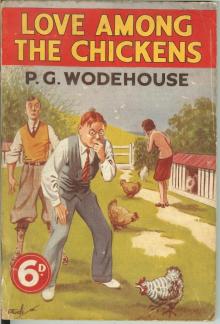 Love Among the Chickens
Love Among the Chickens Carry On, Jeeves!
Carry On, Jeeves!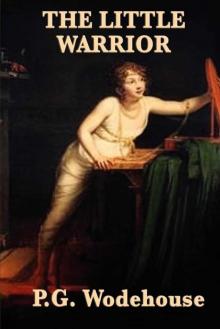 The Little Warrior
The Little Warrior Ice in the Bedroom
Ice in the Bedroom Leave It to Psmith
Leave It to Psmith Thank You, Jeeves:
Thank You, Jeeves: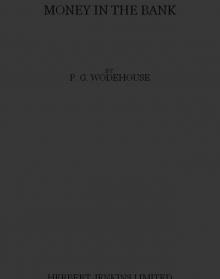 Money in the Bank
Money in the Bank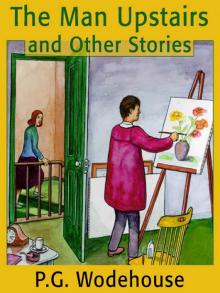 The Man Upstairs and Other Stories
The Man Upstairs and Other Stories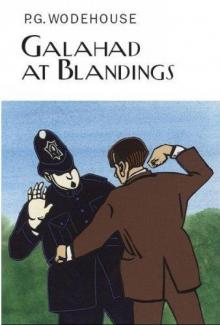 Galahad at Blandings
Galahad at Blandings The Jeeves Omnibus Vol. 5
The Jeeves Omnibus Vol. 5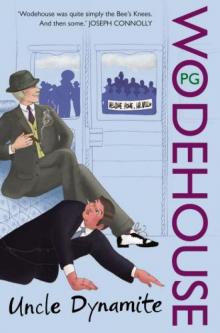 Uncle Dynamite
Uncle Dynamite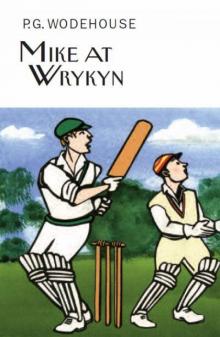 Mike at Wrykyn
Mike at Wrykyn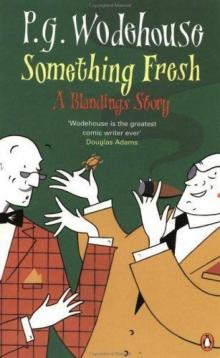 Something Fresh
Something Fresh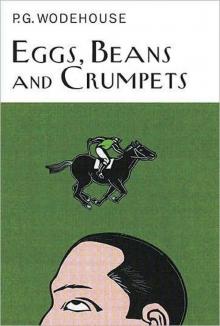 Eggs, Beans and Crumpets
Eggs, Beans and Crumpets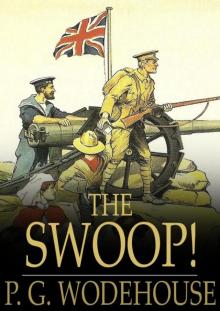 The Swoop: How Clarence Saved England (Forgotten Books)
The Swoop: How Clarence Saved England (Forgotten Books)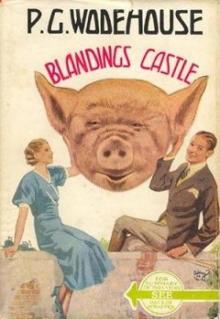 Blanding Castle Omnibus
Blanding Castle Omnibus Wodehouse at the Wicket: A Cricketing Anthology
Wodehouse at the Wicket: A Cricketing Anthology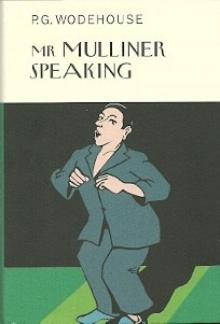 Mr. Mulliner Speaking
Mr. Mulliner Speaking Hot Water
Hot Water The Jeeves Omnibus - Vol 3: The Mating Season / Ring for Jeeves / Very Good, Jeeves
The Jeeves Omnibus - Vol 3: The Mating Season / Ring for Jeeves / Very Good, Jeeves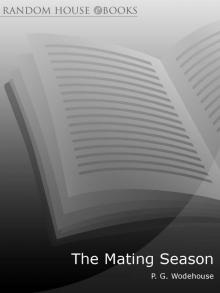 The Mating Season
The Mating Season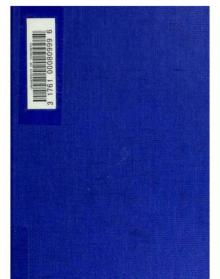 Meet Mr. Mulliner
Meet Mr. Mulliner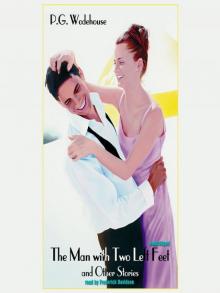 The Man with Two Left Feet, and Other Stories
The Man with Two Left Feet, and Other Stories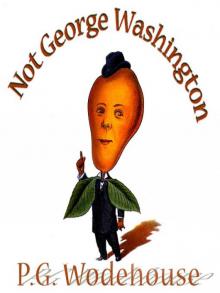 Not George Washington — an Autobiographical Novel
Not George Washington — an Autobiographical Novel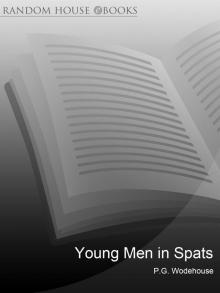 Young Men in Spats
Young Men in Spats The Jeeves Omnibus Vol. 4
The Jeeves Omnibus Vol. 4 A Pelican at Blandings:
A Pelican at Blandings: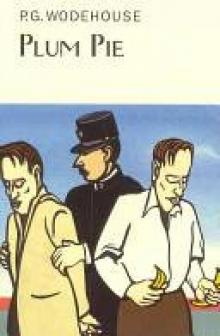 Plum Pie
Plum Pie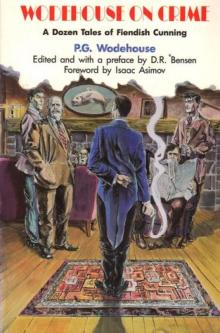 Wodehouse On Crime
Wodehouse On Crime The Jeeves Omnibus Vol. 2: Right Ho, Jeeves / Joy in the Morning / Carry On, Jeeves
The Jeeves Omnibus Vol. 2: Right Ho, Jeeves / Joy in the Morning / Carry On, Jeeves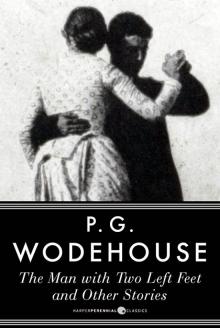 The Man With Two Left Feet
The Man With Two Left Feet Full Moon:
Full Moon: Jeeves and the Feudal Spirit:
Jeeves and the Feudal Spirit: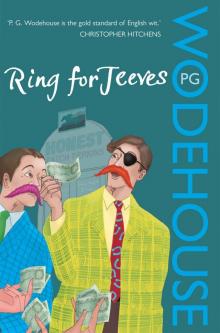 Ring For Jeeves
Ring For Jeeves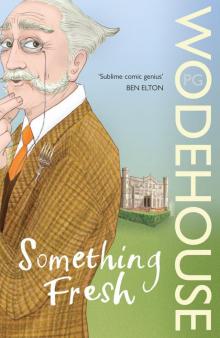 Something New
Something New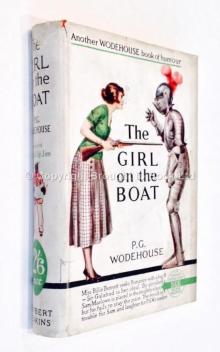 The Girl on the Boat
The Girl on the Boat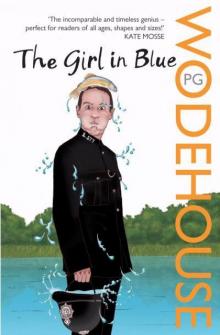 The Girl in Blue
The Girl in Blue Pigs Have Wings:
Pigs Have Wings: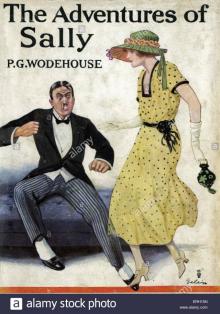 The Adventures of Sally
The Adventures of Sally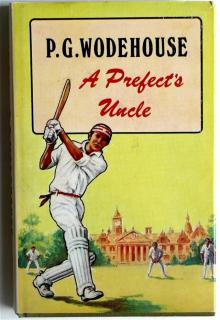 A Prefect's Uncle
A Prefect's Uncle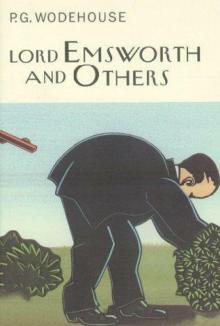 Lord Emsworth and Others
Lord Emsworth and Others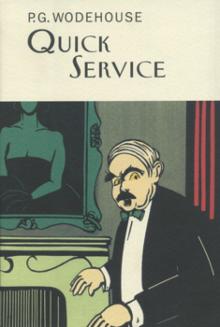 Quick Service
Quick Service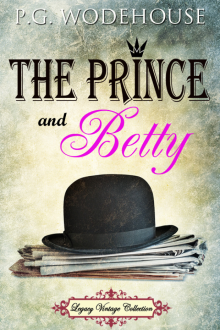 The Prince and Betty
The Prince and Betty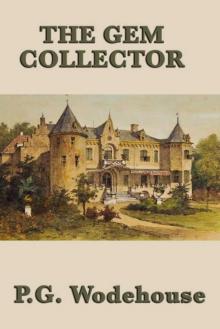 The Gem Collector
The Gem Collector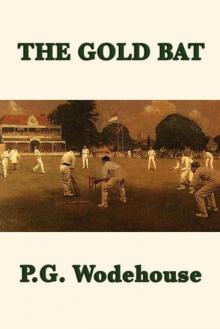 The Gold Bat
The Gold Bat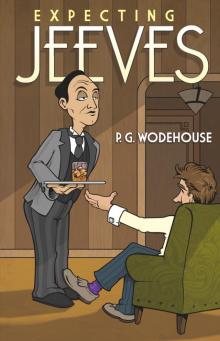 Expecting Jeeves
Expecting Jeeves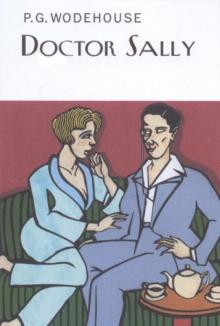 Doctor Sally
Doctor Sally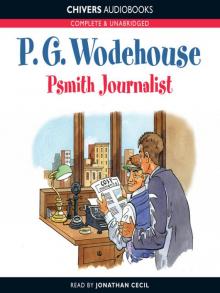 Psmith, Journalist
Psmith, Journalist The Golf Omnibus
The Golf Omnibus Heavy Weather
Heavy Weather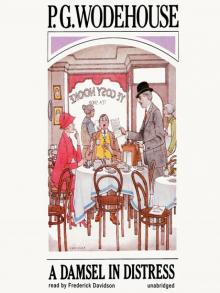 A Damsel in Distress
A Damsel in Distress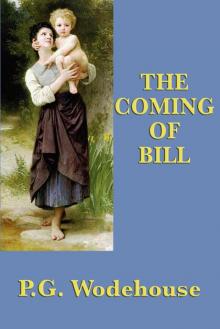 The Coming of Bill
The Coming of Bill Summer Lightning
Summer Lightning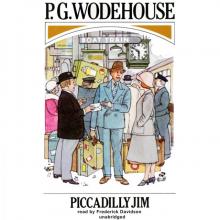 Piccadilly Jim
Piccadilly Jim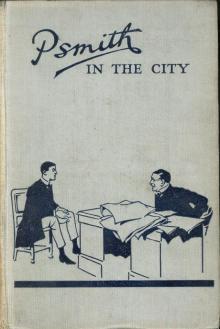 Psmith in the City
Psmith in the City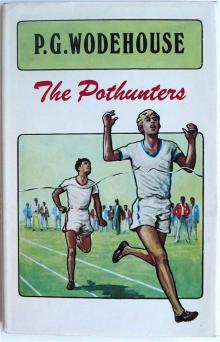 The Pothunters
The Pothunters Service With a Smile
Service With a Smile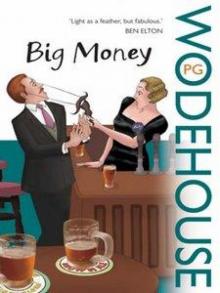 Big Money
Big Money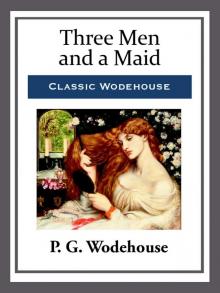 Three Men and a Maid
Three Men and a Maid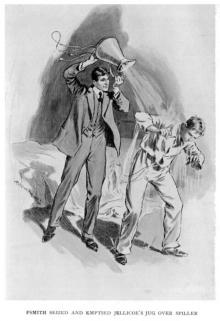 Mike and Psmith
Mike and Psmith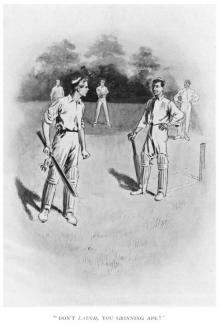 Mike
Mike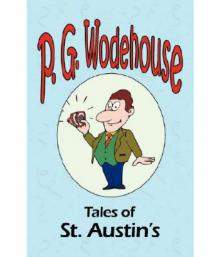 Tales of St. Austin's
Tales of St. Austin's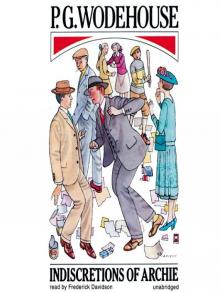 Indiscretions of Archie
Indiscretions of Archie Pigs Have Wings
Pigs Have Wings The Jeeves Omnibus - Vol 4: (Jeeves & Wooster): No.4
The Jeeves Omnibus - Vol 4: (Jeeves & Wooster): No.4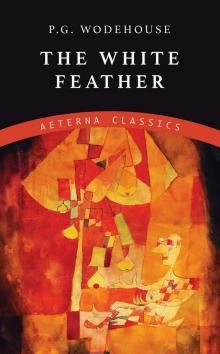 The White Feather
The White Feather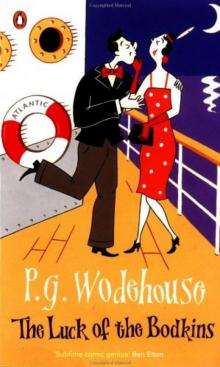 Luck of the Bodkins
Luck of the Bodkins THE SPRING SUIT
THE SPRING SUIT Full Moon
Full Moon Very Good, Jeeves
Very Good, Jeeves Thank You, Jeeves
Thank You, Jeeves Reginald's Record Knock.
Reginald's Record Knock. Wodehouse At the Wicket
Wodehouse At the Wicket LADIES AND GENTLEMEN V. PLAYERS
LADIES AND GENTLEMEN V. PLAYERS The Jeeves Omnibus - Vol 5: (Jeeves & Wooster)
The Jeeves Omnibus - Vol 5: (Jeeves & Wooster) The Jeeves Omnibus - Vol 1: (Jeeves & Wooster): No.1
The Jeeves Omnibus - Vol 1: (Jeeves & Wooster): No.1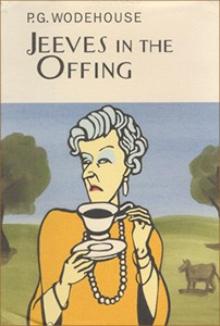 Jeeves in the offing jaw-12
Jeeves in the offing jaw-12